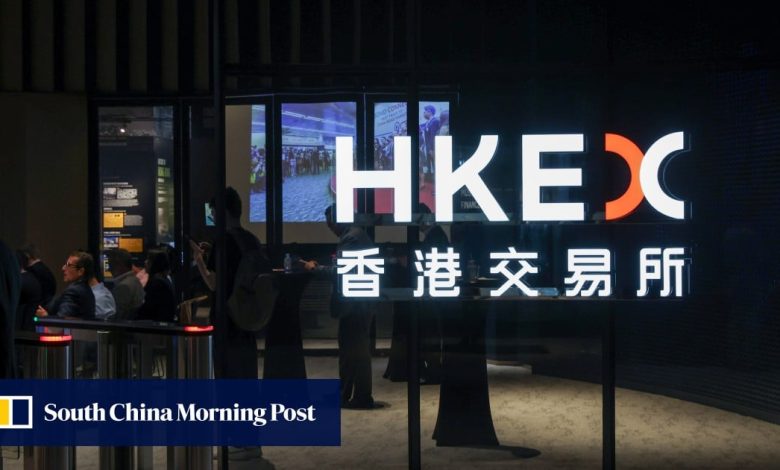Hong Kong eases listing thresholds for tech firms, SPAC deals in fresh tonic for IPO market

Hong Kong Exchanges and Clearing (HKEX) will lower the minimum threshold for yet-to-be profitable technology companies to sell shares through initial public offerings (IPOs), according to a joint statement with the Securities and Futures Commission (SFC). The transaction threshold for listing through SPACs will also be lowered, it added.
The “temporary modifications” will take effect for only three years, starting from September 1, it said. The city’s financial market regulator is supporting both measures, according to the statement.
“We have identified opportunities to boost the inclusivity and dynamism of our listing environment within the established framework,” said Katherine Ng, HKEX’s head of listing. “These modifications will provide greater flexibility and clarity for both issuers and investors.”

The bourse operator introduced some new guidelines in its listing rules in March last year, known as Chapter 18C, to speed up the IPOs of tech firms without the usual profit track records. Since then, only Tencent-backed artificial intelligence drug researcher QuantumPharm and Chinese chip maker Black Sesame have listed via this path on the Main Board.
From next month, HKEX will lower the market-valuation bar for pre-revenue firms to HK$8 billion (US$1.02 billion) from HK$10 billion. For peers with HK$250 million of annual revenue, the minimum will be lowered to HK$4 billion from HK$6 billion, according to Friday’s statement.
HKEX is also loosening the rules in an attempt to give investors in SPACs wider room to manoeuvre. The independent third-party investment threshold should be the currently prescribed percentage of the negotiated value, or HK$500 million in value, whichever is lower, HKEX said.
SPACs are shell companies created to raise financial war chests and buy assets within a limited period, failing which they must return the cash to investors. HKEX introduced SPAC-type listings in 2021 in a belated move. Only five SPACs have been listed locally since then.
The measures “are designed to address the change in market conditions since the introduction of both listing regimes”, according to the joint statement.
Michael Duignan, SFC’s executive director of corporate finance, said the modifications will help maintain Hong Kong’s edge as a top listing destination, showing how listing authorities “can be both agile and responsive” to a challenging market environment.
Bankers and market participants welcomed the latest modifications.
“The lower market cap and fundraising requirement would provide more flexibility to SPACs for business combination and is also more in line with requirements in other markets,” said John Lee Chen-kwok, vice-chairman and co-head of Asia at UBS.
HKEX could potentially go a step further by easing the rules for other companies too, said Edmund Wong, a lawmaker for the accountancy sector in Hong Kong.
“The current listing rules require a company to make a profit of HK$80 million in the three years leading to the IPO,” he said. “This is the highest requirement globally, making it hard for HKEX to compete with other bourses.”


